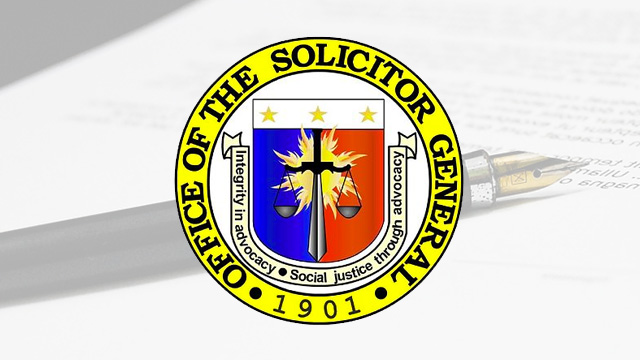OSG represents the People of the Philippines
The Office of the Solicitor General is the appellate counsel of the State in criminal proceedings pending in the Supreme Court and in the Court of Appeals. This is explicitly provided in Section 35(1), Chapter 12, Title III, Book IV of the 1987 Administrative Code, viz.:
 The Supreme Court has stressed that the People of the Philippines, being the real party in interest in every criminal proceedings, can be represented only by the OSG in criminal proceedings in the CA or in the Supreme Court.[1] Yet, this rule admits of exceptions, for as pronounced in Rodriguez v. Gadiane:[2]
The Supreme Court has stressed that the People of the Philippines, being the real party in interest in every criminal proceedings, can be represented only by the OSG in criminal proceedings in the CA or in the Supreme Court.[1] Yet, this rule admits of exceptions, for as pronounced in Rodriguez v. Gadiane:[2]
Section 35. Powers and Functions. - The Office of the Solicitor General shall represent the Government of the Philippines, its agencies and instrumentalities and its officials and agents in any litigation, proceeding, investigation or matter requiring the services of lawyers x x x. It shall have the following specific powers and functions:
(1) Represent the Government in the Supreme Court and the Court of Appeals in all criminal proceedings; represent the Government and its officers in the Supreme Court and Court of Appeals, and all other courts or tribunals in all civil actions and special proceedings in which the Government or any officer thereof in his official capacity is a party.
x x x x
 The Supreme Court has stressed that the People of the Philippines, being the real party in interest in every criminal proceedings, can be represented only by the OSG in criminal proceedings in the CA or in the Supreme Court.[1] Yet, this rule admits of exceptions, for as pronounced in Rodriguez v. Gadiane:[2]
The Supreme Court has stressed that the People of the Philippines, being the real party in interest in every criminal proceedings, can be represented only by the OSG in criminal proceedings in the CA or in the Supreme Court.[1] Yet, this rule admits of exceptions, for as pronounced in Rodriguez v. Gadiane:[2]
A special civil action for certiorari may be filed by an aggrieved party alleging grave abuse of discretion amounting to excess or lack of jurisdiction on the part of the trial court. In a long line of cases, this Court construed the term aggrieved parties to include the State and the private offended party or complainant.
As early as in the case of Paredes v. Gopengco, it was held that the offended parties in criminal cases have sufficient interest and personality as "person(s) aggrieved" to file the special civil action of prohibition and certiorari under Sections 1 and 2 of Rule 65. Apropos thereto is the case cited by petitioner, De la Rosa v. Court of Appeals, wherein it was categorically stated that the aggrieved parties are the State and the private offended party or complainant.
It was further held in De la Rosa that the complainant has such an interest in the civil aspect of the case that he may file a special civil action questioning the decision or action of the respondent court on jurisdictional grounds. In so doing, complainant should not bring the action in the name of the People of the Philippines. He should do so and prosecute it in his name as such complainant. In the same vein, the cases of Martinez v. Court of Appeals, Santos v. Court of Appeals, and Chua v. Court of Appeals adhere to the doctrines mentioned above.
[1] Jimenez v. Sorongon, G.R. No. 178607, December 5, 2012.
[2] G.R. No. 152903, July 17, 2006.
0 Comments